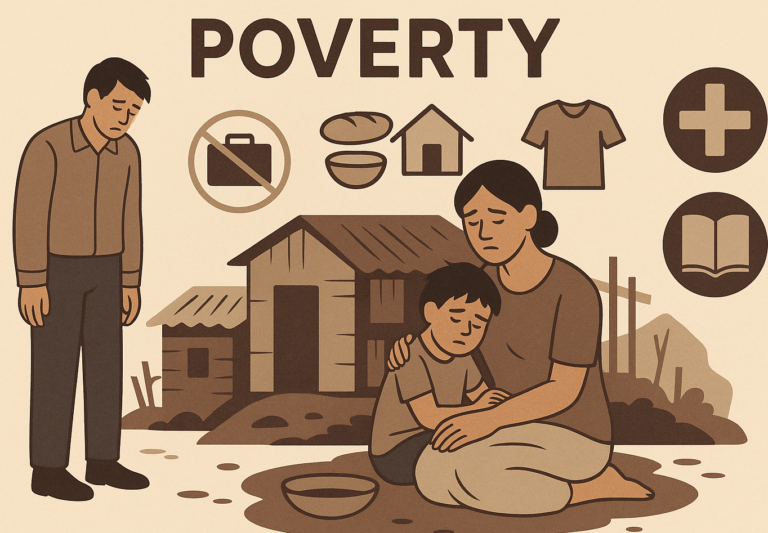Religious and Revolutionary Movements Explained
Throughout history, both religious movements and revolutionary movements have played crucial roles in shaping the world we live in today. These movements often arose in response to social, political, or economic inequalities, and they led to major changes in the way people thought, lived, and governed themselves. Let’s break down some of the most important movements: the Reformation, the Enlightenment, and the French, Russian, and American Revolutions.

Religious Movements
1. The Reformation
The Reformation was a religious movement in the 16th century that aimed to reform the Catholic Church. It led to the creation of Protestant churches and significantly changed the religious and political landscape of Europe.
Causes of the Reformation:
- Corruption in the Catholic Church: By the 1500s, the Catholic Church had become increasingly corrupt. Clergy members were seen as more interested in wealth and power than in serving the spiritual needs of the people. The sale of indulgences (payments to the Church to reduce punishment for sins) was a particularly controversial practice.
- Desire for Religious Reform: Many people felt that the Church needed to return to its original, pure teachings. Scholars, theologians, and ordinary people began to criticize the Church and its practices, calling for a change.
Key Events and Figures:
- Martin Luther: The most famous figure of the Reformation was Martin Luther, a German monk. In 1517, Luther posted his 95 Theses on the door of a church in Wittenberg, criticizing the Church’s sale of indulgences and other practices. Luther’s ideas quickly spread, leading to widespread calls for reform.
- Protestantism: Luther’s ideas, which emphasized faith over works and the Bible as the ultimate authority, sparked the creation of new Christian denominations (known as Protestantism), including Lutheranism, Calvinism, and others. This split from the Catholic Church caused deep religious divisions in Europe.
Impact of the Reformation:
- Religious Wars: The Reformation led to a series of religious conflicts, particularly between Catholics and Protestants, including the Thirty Years’ War (1618–1648) in Europe.
- Religious Freedom: The Reformation paved the way for the idea of religious freedom and helped foster the separation of church and state.
- Rise of Protestant Churches: New Protestant denominations flourished, challenging the Catholic Church’s dominance and reshaping the religious landscape in Europe.
2. The Enlightenment
The Enlightenment was an intellectual movement that began in the late 17th century and continued into the 18th century. It emphasized reason, individualism, and freedom. Enlightenment thinkers believed that human beings could use reason and science to improve society and solve problems.
Causes of the Enlightenment:
- Scientific Revolution: The Enlightenment was influenced by the Scientific Revolution, which had shown that human beings could use observation, experimentation, and reason to understand the natural world (figures like Isaac Newton were key in this movement).
- Critique of Authority: Enlightenment thinkers criticized traditional authority, including monarchies, the Church, and other forms of oppressive rule. They argued that society should be based on reason, not tradition or religious dogma.
Key Ideas and Figures:
- John Locke: A philosopher who argued that all people have natural rights (life, liberty, and property) and that governments should be formed with the consent of the governed. His ideas influenced democratic revolutions around the world.
- Voltaire: A writer and philosopher who championed freedom of speech and religious tolerance. He was critical of the Catholic Church and absolute monarchies.
- Jean-Jacques Rousseau: Another key thinker who argued for the concept of the social contract, where individuals agree to form a government that represents their collective will. He believed in the importance of equality and freedom.
Impact of the Enlightenment:
- Democracy and Human Rights: The Enlightenment promoted ideas that would shape modern democratic governments. The concepts of individual rights, separation of powers, and the rule of law became central to Western political thought.
- French Revolution: The Enlightenment influenced revolutionary movements, especially in France, where ideas of liberty, equality, and fraternity led to the French Revolution.
Revolutionary Movements
1. The French Revolution (1789–1799)
The French Revolution was a political and social upheaval in France that led to the overthrow of the monarchy and the establishment of a republic. It was influenced by Enlightenment ideas, economic hardship, and the desire for political change.
Causes of the French Revolution:
- Economic Problems: France was in deep debt due to costly wars, including its involvement in the American Revolution. The tax burden fell heavily on the poor, while the nobility and clergy enjoyed privileges.
- Social Inequality: French society was divided into three estates: the First Estate (clergy), the Second Estate (nobility), and the Third Estate (commoners). The Third Estate, which represented the majority of the population, was taxed heavily while having little political power.
- Enlightenment Ideas: Revolutionary thinkers like Jean-Jacques Rousseau and Voltaire inspired the public with ideas about freedom, equality, and democracy.
Key Events:
- Storming of the Bastille (1789): The revolution began when angry Parisians stormed the Bastille, a symbol of royal tyranny. This event marked the start of widespread protests and violence.
- Reign of Terror (1793-1794): Led by Maximilien Robespierre and the Committee of Public Safety, the revolutionaries executed thousands of perceived enemies of the revolution. This period was marked by extreme violence.
- Rise of Napoleon: Eventually, the revolution led to the rise of Napoleon Bonaparte, who took power and declared himself Emperor. While he brought stability, he also ended the revolutionary republic.
Impact of the French Revolution:
- End of the Monarchy: The revolution ended the centuries-old monarchy in France and led to the establishment of the French Republic.
- Rise of Nationalism: The revolution spread ideas of nationalism and democracy throughout Europe.
- Human Rights: The revolution also led to the Declaration of the Rights of Man and Citizen, which promoted individual freedoms and equality before the law.
2. The Russian Revolution (1917)
The Russian Revolution was a pair of revolutions in 1917 that ended the Romanov dynasty and led to the creation of the Soviet Union.
Causes of the Russian Revolution:
- Social Inequality: Russia was an autocracy ruled by Tsar Nicholas II. The majority of Russians were poor peasants who had little say in the government, while the royal family and nobility enjoyed great wealth.
- World War I: Russia’s involvement in World War I put a massive strain on its economy and military. The war caused shortages of food and supplies, leading to widespread discontent.
- Enlightenment Ideas: Like the French Revolution, the Russian Revolution was inspired by ideas of equality, democracy, and the rights of the people.
Key Events:
- February Revolution (1917): Mass protests and strikes led to the abdication of Tsar Nicholas II. This revolution brought an end to centuries of Romanov rule and created a provisional government.
- October Revolution (1917): Led by Vladimir Lenin and the Bolshevik Party, this revolution overthrew the provisional government and established the Soviet Union, a communist state.
Impact of the Russian Revolution:
- Rise of Communism: The Russian Revolution led to the establishment of a communist government that would last until 1991.
- End of Tsarism: The monarchy that had ruled Russia for over 300 years was replaced by a socialist government.
- Global Influence: The revolution inspired other revolutionary movements around the world, particularly in Asia, Latin America, and Europe.
3. The American Revolution (1775–1783)
The American Revolution was a colonial revolt against British rule that led to the establishment of the United States of America.
Causes of the American Revolution:
- Taxation without Representation: The British government imposed taxes on American colonies (e.g., the Stamp Act and Tea Act) without allowing the colonies to have representation in Parliament.
- Desire for Independence: Many Americans felt that they should govern themselves rather than be ruled by a distant monarchy.
Key Events:
- Declaration of Independence (1776): The American colonies declared their independence from Britain, citing grievances over British rule.
- Victory at Yorktown (1781): The final battle of the revolution, where American and French forces defeated the British, effectively ending the war.
Impact of the American Revolution:
- Creation of the United States: The revolution led to the establishment of the United States as an independent nation.
- Inspiration for Other Revolutions: The American Revolution inspired other movements for independence and democracy, including in France and Latin America.
Conclusion:
Revolutionary movements such as the French, Russian, and American Revolutions, all had profound impacts on the course of history. These movements were driven by the desire for change—whether it was in religion, government, or social structure—and they helped lay the foundations for modern democracy, human rights, and individual freedoms. Each movement, in its own way, shaped the world we live in today and continues to influence global thought and politics.











